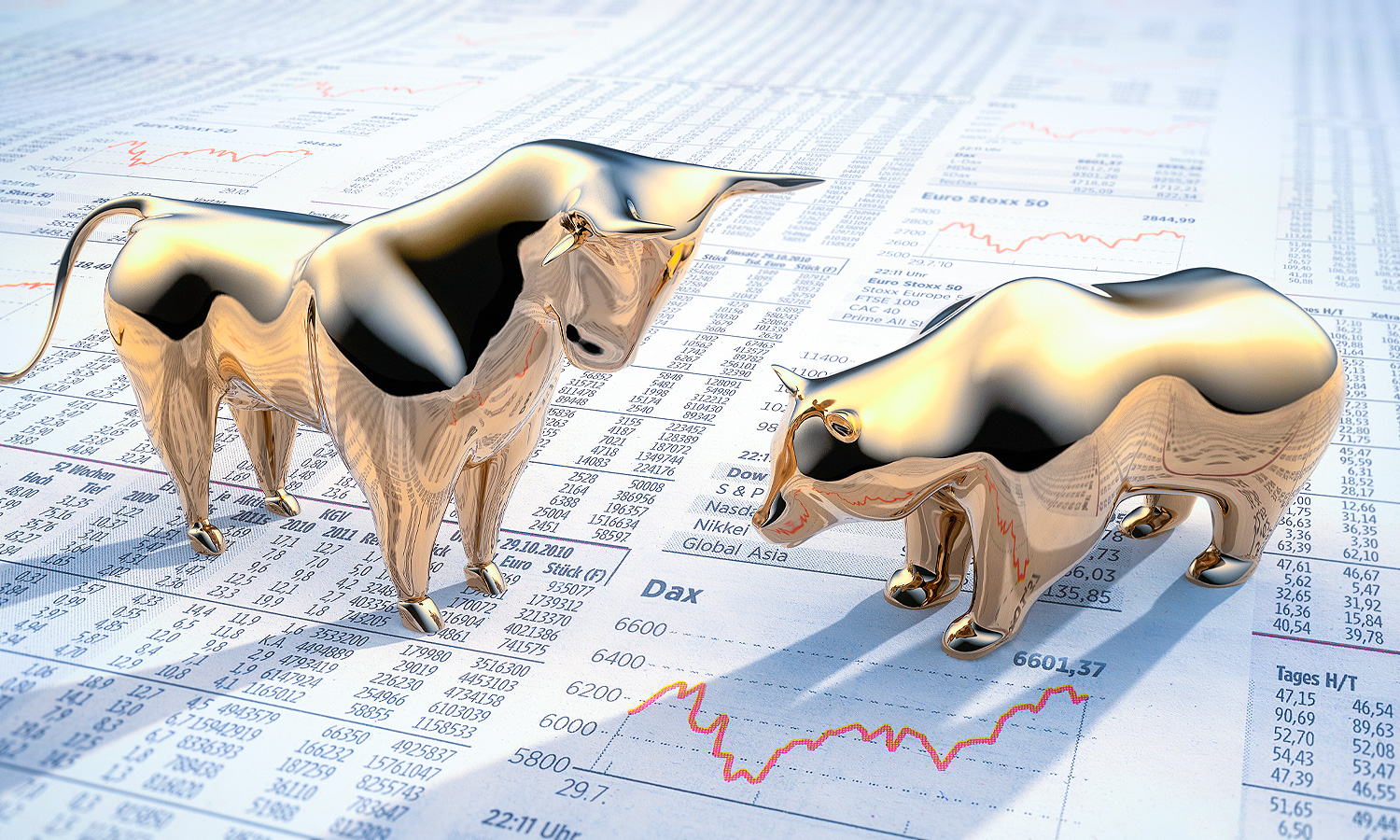Bear vs. Bull Markets: What You Need to Know
The terms "bear market" and "bull market" are commonly used to describe stock market declines and climbs. But not everyone knows the history of the terms — or what causes these particular market forces to emerge.

Read on to learn more about the source of these market monikers, the difference between them — and how big events such as U.S. elections may impact market performance.
What’s a "bear market"?
When stock prices fall, you’ll often hear talk of a bear market. The U.S. Securities and Exchange Commission (SEC) describes a bear market1 as a time of declining stock prices — and generally pessimistic investor sentiment. Bear markets may reflect a weakened economy or a large-scale liquidation of securities and other assets.
Typically, market watchers declare a bear market only after a two-month period during which at least one broad market indicator, like the S&P 500 Index or Dow Jones Industrial Average (DJIA), loses 20% or more in value.
Where did the term "bear market" come from?
Like many common phrases, there are various theories about where the term originated. A simple online search of the topic will turn up an array of theories, including references to bear-baiting, a once popular (albeit cruel) form of entertainment, and the bear-skin trade.
Whatever the phrase’s precise origin, the visual of a bear striking down against opponents makes for a convenient metaphor for downward-trending stock prices.
What can trigger a bear market?
There are a number of potential causes for bear markets resulting from loss of investor confidence, including:
- Slowdowns or weak economic growth
- Disruptions such as wars, major disasters and pandemics
- Real estate or stock market crashes (a.k.a. market bubble bursts)
- Inflation and/or rising interest rates
- Discussions about changes to trade policy, including tariffs
- Fears that shape behavior, such as fear of a recession
How often do bear markets happen?
Depending on your outlook and appetite for risk, you may find it reassuring (or not) to know that bear markets are fairly common.
In fact, over the last century, there have been numerous instances of them.
How might investors approach a bear market?
Watching the value of your investments drop during a bear market can be alarming, especially if you’re approaching a major milestone like retirement or paying for college.
Rather than make decisions based on fear or worry, it’s best to talk with your financial advisor about a bear market’s potential impact on your specific situation, goals and timeline.
» Tip: Although downward stock market and economic trends may seem daunting, remember that financial planning is a long-game undertaking. Fortunately, a knowledgeable financial advisor can recommend strategies, such as implementing diversification and dollar cost averaging, to help you navigate a bear market with more confidence. Plus, they'll continue to help you evaluate your goals, risk capacity and risk tolerance throughout your investment journey, so you'll always be prepared for what's next.
What’s a "bull market"?
If a bear market happens when indexes lose value, the opposite is true for bull markets. When a major market index gains 20% or more in value over at least two months, it’s generally considered a bull market.2 They tend to promote positive investor sentiment — not surprising as the increased market performance can make holdings gain value.
How did the term "bull market" originate?
As with bear markets, where and when the connection was made between the upward toss of a charging bull’s horns and rising stock prices is unclear.
Certainly, the visual metaphor of the animal's “bullish” behavior is a compelling way for people to communicate about how a market is trending.
What can trigger a bull market?
Conditions that support economic growth and optimism can let a bull market out of the gate, so to speak. Look for signs of investor confidence, such as:
- Strong economic growth
- Increased corporate profits
- An increase in economic and societal stability, such as post-war peacetime
- Fewer concerns about real estate or stock market bubbles
- Low interest rates and/or low inflation
- Optimism in the market and the broader economy
How often do bull markets occur?
What goes down — i.e., bear markets — generally (we hope) comes back up.
Historically speaking, bear and bull markets have tended to alternate with one another, each lasting from a few weeks or months to a few years.
How might investors approach a bull market?
Bull markets are exciting because investors may see the value of their holdings increase. However, that feeling of growing wealth can sometimes cause investors to pay less attention to their overall financial goals.
Yet we know from history that even the longest-lasting bull markets eventually come to an end. So it’s wise to plan as if the bull market party won’t last forever.
» Tip: What should you consider when investing in a bull market? It's common to be enthusiastic, but you might want to be thoughtful and maintain overall alignment with your comprehensive financial plan. That’s why an experienced financial advisor can be a beneficial resource. Working together, you can develop strategies and solutions to help you make disciplined investment choices — always with your goals, risk tolerance and risk capacity in mind.
Bears, bulls and election years … oh my!
Might there be a correlation between elections and stock market performance? Some experts profess to believe so, offering stock market predictions on news shows and websites based on how elected leaders and their respective parties could influence the economy.
Arguably among the biggest issues investors face may be the perception of a connection, especially with regard to major races.
Some volatility near an election, especially in the final months and weeks of a major presidential race, is neither particularly unusual nor guaranteed.
As with other parts of our culture, the excitement and anticipation of seeing who will next take up residence at 1600 Pennsylvania Avenue can lend itself to varying degrees of anxiety or hopefulness.
There can even be some market fluctuations during midterm election years, as the electorate awaits the outcome of which major political party will gain control over Congress.
Ultimately, those emotions can find expression on both Main Street and Wall Street.
Although it’s helpful to stay informed about major national events and changing markets, it’s also important to be cautious about letting frantic news headlines and rumors dictate your investment strategy or financial plans.
Finding a resource on economic topics that offers more measured insights can prove helpful.
» Tip: Through our relationship with Ameriprise Financial Services, RBFCU Investments Group hosts a page offering stock market and economic insights.3 Updated several times a month to reflect investor concerns and interests, it’s a free resource to reference.
Finally, and speaking historically, many of us need not think too far back to recall a hotly contested race that coincided with stock market volatility.
Think of the 2008 presidential election, the end of which coincided with a major housing and financial crisis that ultimately triggered an infamous recession.
As difficult as that time period was financially for many people, the economy did eventually recover, only for the stock market to hit more highs and lows.
And so it goes.
The takeaway
What might all of this mean for the average investor? Bulls, bears, experts and election years aside, a diversified portfolio calibrated to your goals, needs and risk tolerance managed thoughtfully over many years is one approach to consider, perhaps in consultation with a financial advisor.
Ready to start the conversation? The friendly professionals at RBFCU Investments Group are here to help you develop a financial plan to suit every stage of your life and career.




